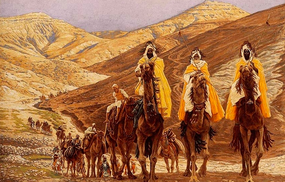 When the cliché is used, “Wise men still seek Him,” an accompanying question should also be considered, “and where do wise people find Him?” This is what the actual Christmas story is answering in the Gospel, is it not? The pageantry of American Evangelical Christmas tells us he, that is Jesus, is found amid the sparkle, high energy, glitter of showmanship, and architectural theater often called “at a church's Christmas service” (or Christmas season special event). The wise magi of the East sought Jesus, the new king indicated by that eastern star, first in the king’s palace (i.e., Herod’s palace). Although a natural and, perhaps, expected place for them to look, they were wrong, nonetheless. What they found, instead, in that palace, where power is expected to reside, was the new-born king’s betrayer and usurper. “Where” they actually found Him—per Matthew’s Gospel, which is a reflection on God’s Word through the prophet Micah (chapter 5)--was amid the weak, poor, insignificant, small little town of Bethlehem, for which the prophet told us, didn’t amount to much. (It couldn’t even raise enough soldiers to protect itself—a point of the Micah 5 passage).
Where are you seeking Jesus, the Messiah, born King, who will usurp all competitors to your allegiance? It matters where you seek Him, for where you find Him matters—for finding him puts everything at risk, for the powerful, elite, and the affluent-dependent, even the christendom-dependent, will seek to stop this humble king from disturbing their power, from taking their possessions (and don't be fooled, you are their possession). Those in power will most assuredly attempt to stop him from destroying their reign over realms under their control (and, again, don't be fooled, you are under their control). Perhaps, this is why the original Christmas story and the post-script of those seeking long ago from the east is told: Jesus, heaven’s king, sent by the Father of all creation, is found where all is already lost, marked for death.
Where do you find the new born King? Think more deeply about Christmas.
2 Comments
I spend as much time reading as I can. I don't read fast anymore. Mostly slow, reflective, and way too much musing on the author's thoughts sending me into my own streams on consciousness. There are a few books on working on now that don't make this list and a few "on the table" to start, which I feel have the makings of important books for me to read or finish reading (see the up-coming post on "What's On My Table to Read in 2018"). The order is arbitrary and does not suggest which is the #1 or #10. Nor of these books the only ones I read in 2017; but they are the ones that have most impacted my thinking, challenged my Christianity (really my attachment to christendom), and motivated me toward church ministry and being faithful in my call as a church planter in the Hill community of New Haven, CT. I highly recommend these books for your 2018 reading . . .
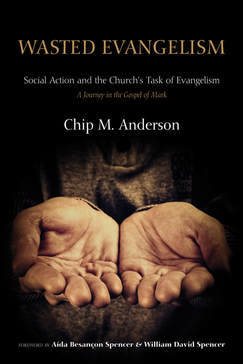 Here are the top 5 most read (clicked anyway) Wasted Blog essays posted in 2017. Thank you all for taking the time to read my crazy streams of consciousness. I am concerned that we have a divided wider-church along political agendas, demographic lines, institutional maintenance (and yes, sometime protection), and power-centers. Often it seems the sides and advocates on one side have a thick gospel and a rather thin ecclesiology; while the other has a thick ecclesiology and a thin gospel. My intention is to show the biblical links between evangelism (and the gospel) and the issues of poverty, which include racism, the issues of personhood, the role and responsibilities of the church, and christian discipleship. I seek a thick gospel and a thick ecclesiology. This has nothing to do with balance; for biblically, I do not believe you can have one without the other. My Wasted posts and Wasted Quotes reflect my thinking and sometimes (patience is needed at this point by the reader) the process of my thinking on the subjects related to Wasted Evangelism. In the end, it is my hope to engage the Bible fairly and the Wasted subjects with deep biblical and theological reflections. And, some honest questions and observations thrown in as well. Thanks for a great Wasted year and for reading my Wasted Blog posts.
King Herod's role in the Christmas narrative reminds us: Don’t be fooled by power’s kindness. Nor, should we be deceived or taken captive by power’s rhetoric that simulates our faith or about its care for all of humankind. Herod’s words from Matthew's Gospel remind me of how Paul Johnson concluded his book, Intellectuals:
Those with (and/or in) power, whether thrones, government (elected, junta, coup d'état, or inherited), or even the powers that are exercised through business, do not take challengers to their power lightly. They give the allusion of love for humanity and, too often, feign worship to disguise their real intent: control any possible insurrection of their power. Both Christians on the right and the left should be aware of this bent of power's intentions. Power is never, ever a friend to the gospel of Jesus Christ. Never. Ever. Think more deeply about Christmas. Chip M Anderson is the author of Wasted Evangelism: Social Action and the Church's Task of Evangelism. A deep, exegetical read into the Gospel of Mark. All royalities go to support his church planting ministry in the Hill community of New Haven, CT. The book or its e-formats can be found on Amazon, Barns'n Nobel, (and most other online book distributors) or through the publisher, Wipf & Stock directly.
Here are two readings of "Journey of the Magi," both needing to be heard. Take the time. One is TS Eliot himself reading his poem; the other by Denis Adide, who gives it current visual to the poem.
Denis Adide reading of the Journey of the Magi >> TS Eliot reading Journey of the Magi >> 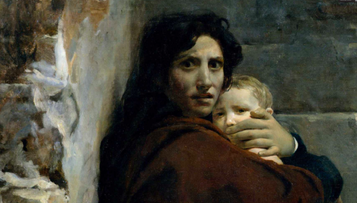 While Christians are lulled into the gladness and glitter of this highly commercialized and consumer-oriented season, not a day goes by without a wave of human tragedy crashing in on our souls, whether personally or through talking-head news, social media, or on the front pages of our news rags. Yet, we persist in counting this season as one of joy and good cheer Furthermore, we take our annual offense at church outsiders for taking the "Merry Christmas" out of our sacred season. Nonetheless, Christians underestimate our unbelieving and unchurched neighbors and friends. We dismiss the possibility that, in their own way, they might actually be seriously seeking answers—ultimate answers—about life, death, faith, and God. Often, however, it is our particular version of Christianity that has been rejected or held in suspicion, not the biblical one presented in the pages of our New Testament. Sociologist and Christian author Os Guinness writes that to the believer Christianity “was once life’s central mysteries, its worship life’s most awesome experience, its faith life’s broadest canopy of meaning . . .” But, today, he laments, no matter how passionate or committed an individual believer may be, Christianity often amounts to little more than a private preference, a spare time hobby. Such a faith and church experience is insufficient for our time—insufficient for our unbelieving neighbors. Our modern version of Christianity and, in particular at this time of the year, the contemporary Hallmark Card version of the Christmas story, is significant when we consider how non-believers view the church and its message. For serious seekers, such spare-time faith is not a solution to their deepest needs. Christianity must be more than a cozy warm blanket; something more ultimate to raise one up above one’s immediate and very felt needs. Amid the glad tidings often associated with the Christmas story is an oft-missed dose of “reality” etched into the biblical scene. The original story of the Savior's birth was accompanied, grievously, by the slaughter of innocent children. “Then when Herod saw that he had been tricked by the magi, he became very enraged, and sent and slew all the male children who were in Bethlehem and all its vicinity, from two years old and under, according to the time which he had determined from the magi” (Matt 2:16). Along with shouts of exultation from shepherds, homage from the Magi, and angels praising God, there is another voice we need to hear:
These are strange words coming in the midst of this joyous occasion we call Christmas. Yet, they must be heard, a reminder that lament and despair grip the human experience. The first time we meet this Old Testament character, Rachel, is at that delightful moment when she thought she would be marrying the love of her life, the young patriarch Jacob. But the story turns quickly to despair: Rachel’s father deceives Jacob into first marrying Leah, her older sister. Then, as the story continues, to make matters worse, Leah has eight sons as Rachel remained childless and we hear her wail the depths of her barrenness. God eventually takes Rachel’s reproach away by giving her a son, Joseph, Israel’s future deliverer. But, while giving birth to her second son she hears news that Joseph, her first-born, had been murdered. Upon receiving this news, “Rachel began to give birth and had great difficulty.” Then, reflecting on her anguish she names her newest born son “trouble” (Benjamin) and she dies and is buried by the roadside on the way to Bethlehem. (Yes, that's right, Bethlehem. See the Christmas connection!). Rachel’s story, as well as the original Christmas story, is surrounded by the swing between suffering and gladness, between despair and hope. The very realities of life.
The gospel story is pictured in Rachel’s cry, that is, of God’s Son ending up on a cross, rejected, and dying the cruelest of deaths. The reality of life, its pain and often unfairness, demand that one must turn to the God of Golgotha, who alone can provide the relief, the comfort, not simply mere sentimentalism or “spare-time” religious experiences. No other hope except God’s work in Christ can penetrate our neighbor’s deepest hurts or pierce their loneliest moments, or lift them above their needs. Amid the tinsel and cheerfully wrapped presents, let us remember Christ’s birth wasn’t to increase retail, but to bring good news that would meet the deepest needs and light the darkest space of the human experience. Our unbelieving, skeptical friends and neighbors deserve no less. And in this, they might find the real Christianity they need and the hope they long for.
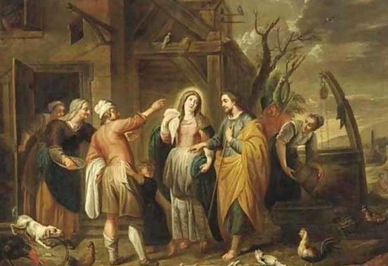 Just saw a rather good tag line in a meme: "Is there room for me in your Christmas?" Yes, I know a cliché, but this time there is valid application. I sure like this Christianese cliché more than the other-ad nausea-one: Jesus is the reason for the season--and here's why: Of course the original Christmas story teaches us somethings about the Christ, the second person of the trinity, the Son of God become flesh (very very important stuff), but these texts are to help us understand the nature of redemption--the gospel--and the purpose of the church. So who we are as church is to be lifted from this story. So, here goes: "We are the reason for the season." Not only did Jesus come to save us (i.e., the reason for the season), but we are Christmas to the dying world. And, I am wondering if all our attempting to follow the retail and commercial world in our presentation of the Christmas story has taken us away from our role in all the gospel. As for the other meme quote, "Is there room for me in your Christmas?" is so relevant a question for the church, the local church. There are so many people (do I really need to list them for you?) that are wondering about just this with regards to our churches. What, really, whom don't we have room for "at church"? Not only has retail highjacked Christmas, in some way the church has as well made retail our bottom-line; making it exactly the same as retail version to grow our churches, up-contributions, and make us feel all warm for this holiday season. Here's the rub: What does our way of "doing church" (and doing Christmas) suggest or teach others for whom we do and do not have room? Think more deeply about Christmas this year. Think more deeply about Christmas: The bible’s Christmas story begins and ends with death12/18/2017 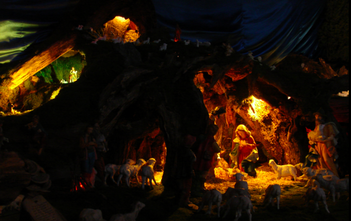 On the one hand, we harness Christmas "in" the church as a platform to attract people to our church. On the other hand, the retail world harnesses the "spirit" of Christmas so people will buy stuff. Not so sure there is a shade of difference between these two idolatries. I am convinced, however, that our tamed version of the Christmas story is truly unable to save to the uttermost, to deliver men and women from the deep despair, selfishness, suffering, and sordid wounds that scar our souls and minds. As my daughter once reminded me, after a long ago now forgotten Christmas Eve service, we cannot avoid the fact that the Christmas story begins and ends in a death sentence—at every turn someone wants Jesus dead. Yet, we have so tamed the original (Matthew and Luke) story and have made it more palatable to fit on a Hallmark card or as background muzak for our Christmas season shopping experience at all the big box stores stores. There is lament blended with the angelic choir declaring peace and joy; and, it is only through this lament (found in Mary’s song and in Rachel’s cry) that this joy and peace may come. Or, found in that all too easily passed over lamentful promise to Mary by Simeon, the old man in the temple after Jesus’ circumcision, who said,
The wretchedness of humanity and the deep wounds of our neighbors are not cured by our tamed, commercialized Christmas story.
Think more deeply about Christmas. With seasonal concerts and church Christmas pageants abounding in our schedules, I think today is a good day to re-post a quote from my daughter, Amanda. Potent stuff to think about as we scurry through the Christmas season with many hours spent watching and listening in our church pews . . . I credit my daughter for thinking more deeply about Christmas even while she was in her teens. She reminded me that most Christians don't see that “the biblical Christmas story begins and ends with death.” The following is from a scratch piece of paper, torn on the edges, penned and handed to me at a Christmas eve service we attended together, now, a few years ago. She was an older teen at the time. And here, she sees a broader view, one that is beyond a warm and cozy Christmas.
Think more deeply about Christmas. (See all posts in this "Think more deeply about Christmas" thread >>
|
AuthorChip M. Anderson, advocate for biblical social action; pastor of an urban church plant in the Hill neighborhood of New Haven, CT; husband, father, author, former Greek & NT professor; and, 19 years involved with social action. Archives
February 2024
Categories
All
|
Pages |
More Pages |
|

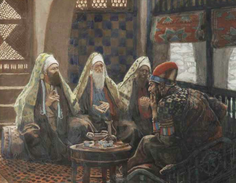
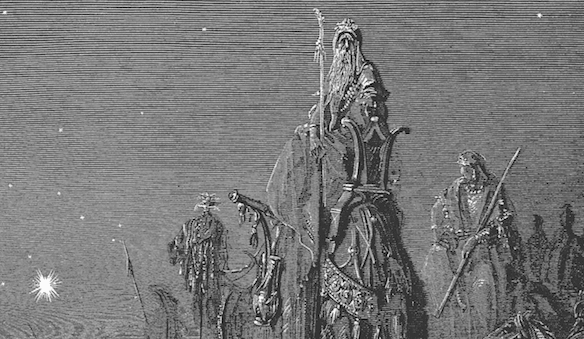
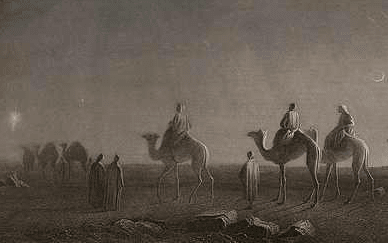
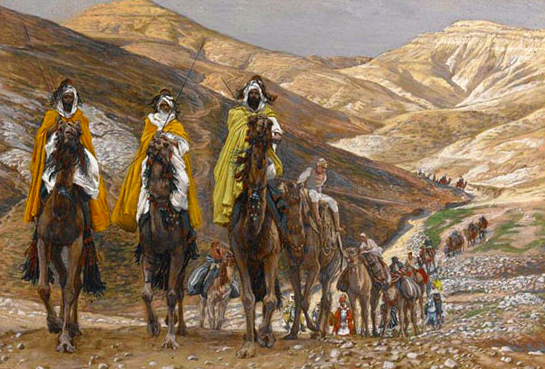
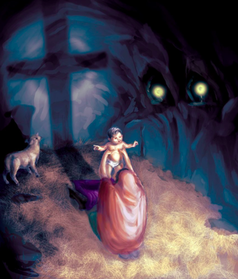

 RSS Feed
RSS Feed